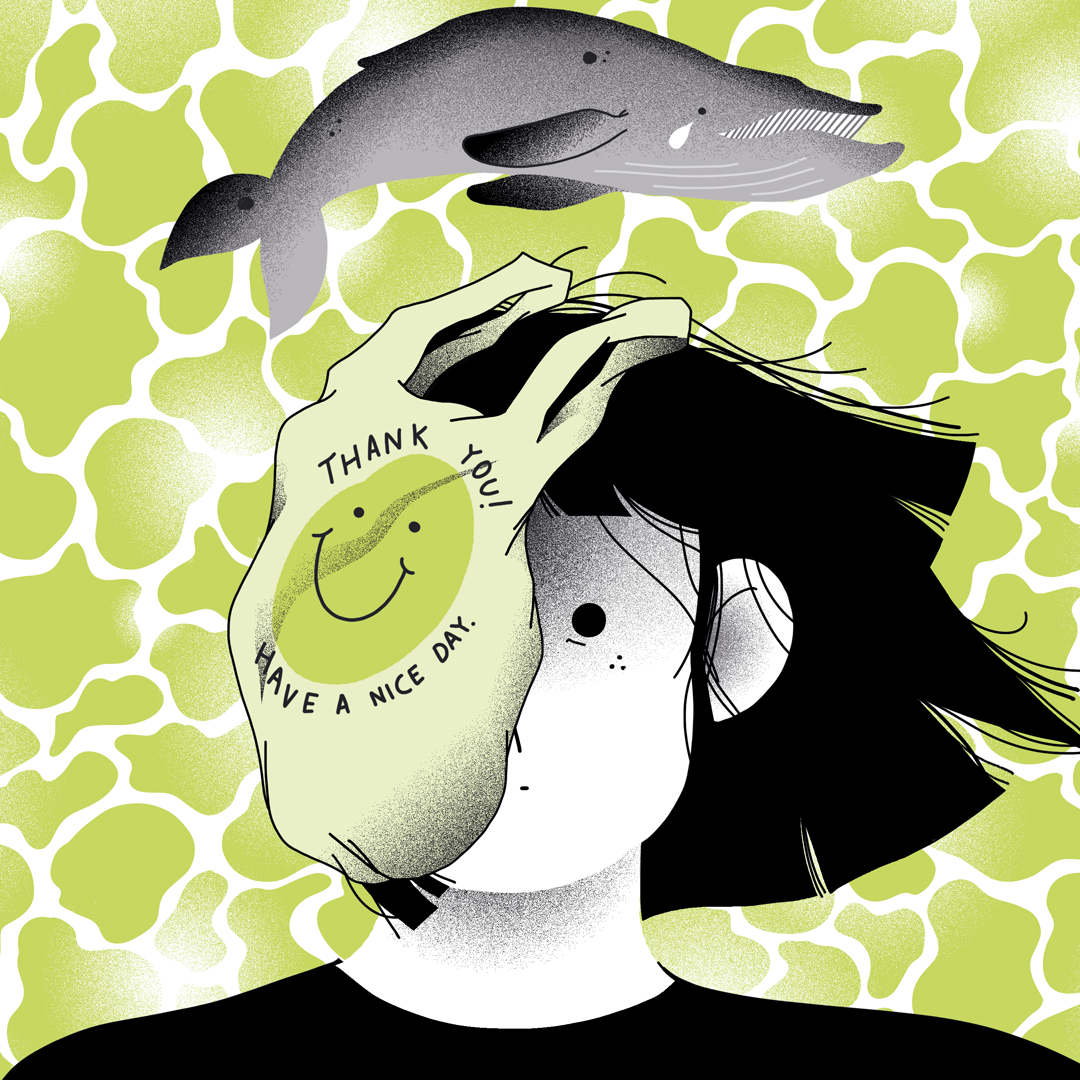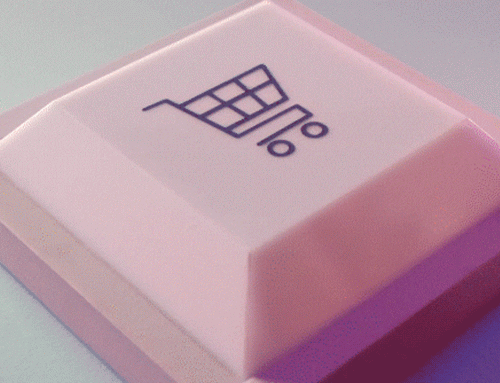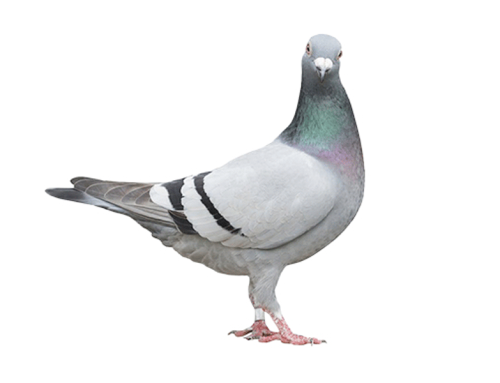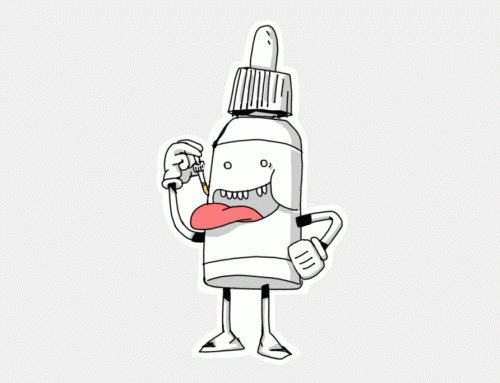No four-word sentence in the English language can strike greater dread into one’s heart than “My parents are coming.” It’s not that I don’t like my in-laws. I love visiting them in their house, but any visit from an older generation to your place ends up being an inspection of your adulting skills. Worse, with an in-law when it gets to be too much, you can’t yell at her to back off like you would with your long-suffering mother, before storming into your room like a petulant teenager. You yell at the boyfriend instead, who dutifully absorbs your territorial rage and completely fails to pass on the message. “They’ll have lunch with us on Sunday,” he continues, bless his clueless soul, “and my mother wants to know what she should bring. She can cook a paella.” “Bring food all the way from their place? On a two-hour drive?” Don’t say it mouth, don’t do it. I forbid you from saying- “Don’t be silly, I’ll cook.” Bollocks!
We were on a zero plastic challenge this week. I’d cancel but I’d already tweeted it. There was no turning back now. I drew up my inspection ready list and checked the recipe. “You can basically put anything you want into a paella,” the boyfriend assured me, “there’s no one right way to make a paella.”
– “So I can put chorizo like Jamie Oliver?”
– “No. You can’t.”
– “But you said…”
– “¡No chorizo!”
Do try this at home. Serve your Spanish lover a paella with chorizo, then sit back and watch. Hours of entertainment. Hours.
I hit bonArea first, preferring to buy from a farmers’ cooperative. What I could buy is sweet fuck all. Not a single vegetable is free of plastic bags or plastic netting. There were plastic tubs with four assorted fruits, wrapped in cling film. A great way to get your not-quite-5-a-day. There’s food in black plastic trays which can’t be recycled. Sorting machines can’t identify them. This is local produce, man. They need to do better.
In 2017 Barcelona produced 2,113 tons of waste per day, of which 1,344 was general waste and 769 was from recycling bins, giving us an alleged recycling rate of over 36%. Apparently 2018 went much better, but the data isn’t available yet.
General waste in Barcelona goes to one of four ‘Eco Parks’ where it undergoes a sorting process to extract even more plastic. This is because in Spain we throw a lot of plastic into the general waste. So really we recycle more than 36%, right? Yay!
No. No yay. We are not at the happy end of Act 3. We are eyeballs deep in the middle of Act 2, kids. Humanity is facing THE ORDEAL. Here’s why: The yellow bin stuff from BCN is sorted into categories to be sold to recyclers and rejects. These rejects can’t be recycled due to contamination or multiple materials (cough! Pringles tube). They are sent to the great Integral Waste Recovery Plant in the sky…and burnt. Except, we don’t call it that. Burning is what people did in the dark ages. We implement ‘energy recuperation’ through incineration i.e. it’s turned into electricity and steam, i.e. it’s counted as recycling.
A 2018 report by Deloitte on recycling of plastics in the EU, put landfilled plastics at about 23% with 47% incinerated. Half of the remaining plastic waste was exported. Recycling of exports is famously unverifiable. Insane quantities of our waste are dumped in countries which barely have a recycling infrastructure for their own plastics. Thus Deloitte only count plastics processed in Europe, giving us an estimated recycling rate of 15%.
The EU Waste Framework Directive (just rolls off the tongue, doesn’t it?) has set a recycling target of 50% of municipal household waste by 2020. That’s 6 months away. Don’t we just love the whooshing sound deadlines make as they pass us by?
Next time a recycling company says, ‘circular economy’, sit them down and draw them a circle.
Next time a recycling company says, ‘circular economy’, sit them down and draw them a circle. Adding more stages to a linear system doesn’t give you a circle, just a longer line. You only believe in the circular economy recycling fairy if you desperately don’t want to change your life.
It’s time to change your life.
Failing at bonArea I set off on a supermarket quest. It went like this:
| The List | bonArea | Mercadona | Condis | Jespac |
|---|---|---|---|---|
| Rice | 3 types of rice in plastic tubs with cardboard sleeves. No bagged rice. |
15 types of rice. 1 brand in a paper bag (Nomen). | Plastic bags or tubs. | 23 varieties: 4 in paper & 1 in cloth (SOS proudly states it’s the only brand with 100% paper packs). |
| Red pepper | Plastic tray with plastic wrap. | 2 varieties sold loose. The 3rd variety is a pack of 3 on a black tray in a plastic bag. |
Loose. | |
| Onion | Plastic net. | No loose onions. | Loose (all veg loose). | Loose. |
| Stock | Tetra pack (cardboard, polyethylene and aluminum). | Tetra all the way. | Tetra fo’eva! | Gimme a T! Gimme an E… |
| Shrimp & squid | Plastic. | Fish counter (I could use my own container). | Plastic. | Fish counter. |
| Laurel | Huge plastic bag for 10g. | Plastic bag. Mucho bag, poco laurel. | Plastic. | Over the top plastic tub. |
| Wine | Single-use glass bottle. | Ditto. | Ditto. | You know it. |
| Olive oil | 1L plastic. | 1L single-use glass bottle. | Plastic. | Single-use glass bottle. |
| Pork ribs | Plastic tray with plastic cover. | Plastic fantastic. | Plastic. | Butcher counter, covered in cling film |
| Dessert | Nothing available that wasn’t in plastic. | Ice cream brick available in cardboard carton. | Plastic tray, wrapped in plastic, covered in cardboard. | In paper sleeve. Finally! |
| Bread | Plastic sleeve. | Sold loose in bakery. | Plastic. | Butcher counter, covered in cling film |
| Olives | 350g single-use glass jar (largest). | Single-use glass or tin available. | A bizarre 42 varieties in a tiny Condis express: glass, tin, and plastic. | 40 varieties: 9 in plastic bags or tubs |
| Hand soap | Liquid in a plastic bottle only. | 4 types: bar in paper or cardboard. | Liquid in plastic bottle. | Lots of plastic, Dove in cardboard. |
| Cleaning rag | 11 types of cleaning cloths, all in plastic bags. | 13 types/ 1 not in plastic. |
It’s the same story in Caprabo, Carrefour, Lidl. So forget about a plastic-free paella. I could just about make them rice with fish and vegetables if I shopped at Mercadona or Jespac. All spices and flavoring are heavily packaged. No onions in the paella if I shop at Mercadona, so the Valencianos will be happy. If I go to Jespac, I can at least use a cleaning rag to dust the place.
Organic products were plastic fantastic, and often in arbitrarily small portions. Rice for example.
Organic products were plastic fantastic, and often in arbitrarily small portions. Rice for example. Who the fuck decided no one ever needs to buy more than one kilo of rice, a product that civilizations have risen and stabilized on, due mainly to their ability to produce and store it for crazy long times? But according to our supermarkets a family of four cannot possibly see into the future far enough to guess they may want rice for more than 2 meals for the rest of their lives. There are stirrings of awareness, but poco. The organic range at Jespac was clearly anti-plastic and even Estrella are trialing cardboard beer can holders, but Lidl organic was a 50-50 mix.
Fruterias, butchers, and fishmongers can be found in every neighbourhood, from your local mercado to independent shops. Grains and spices are harder to find sold loose. I decided to check out some ‘granels’ which appear on zero-waste lists for the city. The first, Jaime J. Renobell, had a good selection of grains, spices and dried foods but the bags available were plastic and everybody used them. An assistant preparing an order double bagged everything. Shelves were stacked with sweets. My supermarket hell tour had already taught me that the further you go from real food, the worse the packaging gets. Desserts, sweets, chocolate thingammies with plastic toys inside, crisps, banana-shaped neon sweets, all divided into individual portions, wrapped, then double or triple bagged in hard to recycle plastics. The less you need it, the more care the manufacturer took to ensure it survives the apocalypse.
The less you need it, the more care the manufacturer took to ensure it survives the apocalypse.
Casa Perris had less packaged food and, once again, a great selection of rice, grains, cocoa and spices. The plastic bags proudly announced their recycled origins and urged you to recycle them after use. My fingers punctured the bag while rooting about for a pen. Not even single use.
I visited Yes Future, a zero plastic waste shop in Sant Antoni, and spoke to Alejandro Martínez who co-founded the shop with Olga Rodríguez. It’s the kind of shop someone sets up to solve the problems they themselves have encountered trying to shop zero waste. This becomes clear as you spot solutions to problem products you’ve been unable to substitute yourself:
- Detergents and cleaning products on tap
- Beer and kombucha on tap
- Cloth produce bags, jars and bottles to buy and reuse
- Paper bags if you’ve come without
- Guilt-free cookies and sweets
- Veg stock in powder
- Pasta – the first loose pasta I’ve seen and they’ve got several varieties, with some cheap staples. Macaroni at 0.47cents/100gms anyone?
- Compostable coffee capsules, or even better, refillable capsules. (Capsule coffee is the devil. Boicot George Clooney and anything made by Nestle if you have hope for the future.)
- Sunscreen
I ask them what the biggest challenge setting up a zero-waste shop was. “Finding the suppliers. We spent a year and nine-months researching suppliers to prepare our business plan. We try to use local, organic, and small-scale suppliers. For products like spices, which aren’t grown here, we look for fair trade products linked to NGOs or charities. And we’re still searching, always trying to find more products.”
Have suppliers changed their packaging habits to adapt to Yes Future? Alejandro nods, “We do have some suppliers who have changed how they supply to us. The tooth brushes, for example, are already in a box, and maybe ten of them would be packed into another box. We asked them to send us the quantity we requested loose. There’s no need for those extra boxes. And we send the containers back to our supplier of cleaning products to be used again. That’s a Barcelona company, by the way. They reduce the packaging, because they know it’s important to us. Do they do this with their other clients? I’m not sure.”
So, what needs to happen for near zero waste shopping to become the normal way to do things? “We work long hours then rush to the supermarket, grab what we think we need and fling it in our basket with no thought. It’s convenient but we need to change our way of doing things. We need to go back to spending more time, buying things with care.”
Their work is inspiring, and it’s a start, but as the scientific world a.k.a. Twitter memes say, ‘We don’t need a handful of people doing zero waste perfectly. We need millions of people doing it imperfectly.’ Enter the supermarkets.
Mercadona is the only supermarket which got back to me. According to their 2017-2018 Environmental Report, they’re conducting a global study with ITENE (Instituto Tecnológico del Embalaje, Transporte y Logística) to analyse the sustainability of packaging options. Based on the findings they’ll establish criteria for their suppliers to design containers. They’re also testing compostable produce bags and cardboard or cellulose (cane-based) containers for takeaway food in some shops.
I asked Remei Uz, Head of Communication in Catalonia, what the brand sees as the main challenges in reducing plastic waste. “For Mercadona, today, the biggest challenge lies in the development of innovation, finding alternative packaging or sales and transport formulas that always guarantee food safety. We’ve already got some of our brands and services giving us good results with alternatives such as wood, paper, or sugar cane.” So I ask if they are considering offering refill services in their shops. “We’re studying it,” Uz said, “keeping in mind that our main objective is always to guarantee food safety.” Okay, but what about cleaning products? Wouldn’t that be an easy win? No food safety issue and imagine the waste revolution if they installed a wall of detergents on tap in every shop. Imagine 5.1 million Mercadona households start refilling cleaners because it’s cheaper than buying a bottle.
They seem to have good intentions, but this also serves as a reminder of the limitations of supermarkets. While they may be powerful entities, they’re also very much children of the ‘constant growth’ cult. Sustainability needs reduction, not just in waste, but in consumption. We can’t just swap out materials and carry on with our insatiable and wasteful demand. Where is the land to grow that wood, sugar cane or corn packaging? Whose arable land are we going to turn over to this new demand? Whose food production could drop because it’s more profitable to grow raw material for packaging than it is to grow food for the local market? Who pays? When you take more than you need, there’s always someone who pays. And for what? A packet of crisps? A neon banana-shaped sweetie?
That’s the maddening thing about trying to go zero waste, and why it’s so effective. To do it right you need to change a lot of fundamentals. You have to start with the right intentions, and then you need to devote time to living, to taking time to plan, shop and cook. It forces you to eat more real food, and less shit. Busy stops being such a self-aggrandizing word. And. if at first you need to serve the in-laws rice with meat and vegetables instead of a paella, that’s okay. They won’t know if you got it wrong because it’s your own recipe anyway.







